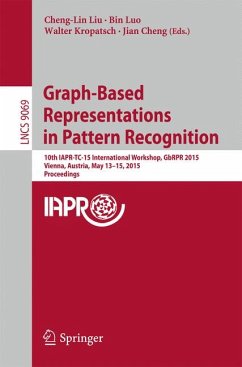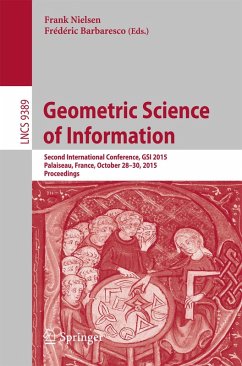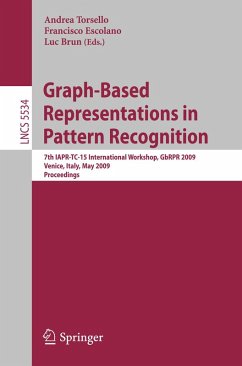
Digital and Discrete Geometry (eBook, PDF)
Theory and Algorithms
Versandkostenfrei!
Sofort per Download lieferbar
40,95 €
inkl. MwSt.
Weitere Ausgaben:

PAYBACK Punkte
20 °P sammeln!
This book provides comprehensive coverage of the modern methods for geometric problems in the computing sciences. It also covers concurrent topics in data sciences including geometric processing, manifold learning, Google search, cloud data, and R-tree for wireless networks and BigData. The author investigates digital geometry and its related constructive methods in discrete geometry, offering detailed methods and algorithms. The book is divided into five sections: basic geometry; digital curves, surfaces and manifolds; discretely represented objects; geometric computation and processing; and ...
This book provides comprehensive coverage of the modern methods for geometric problems in the computing sciences. It also covers concurrent topics in data sciences including geometric processing, manifold learning, Google search, cloud data, and R-tree for wireless networks and BigData.
The author investigates digital geometry and its related constructive methods in discrete geometry, offering detailed methods and algorithms. The book is divided into five sections: basic geometry; digital curves, surfaces and manifolds; discretely represented objects; geometric computation and processing; and advanced topics. Chapters especially focus on the applications of these methods to other types of geometry, algebraic topology, image processing, computer vision and computer graphics.
Digital and Discrete Geometry: Theory and Algorithms targets researchers and professionals working in digital image processing analysis, medical imaging (suchas CT and MRI) and informatics, computer graphics, computer vision, biometrics, and informati
on theory. Advanced-level students in electrical engineering, mathematics, and computer science will also find this book useful as a secondary text book or reference.Praise for this book:
Dieser Download kann aus rechtlichen Gründen nur mit Rechnungsadresse in A, B, BG, CY, CZ, D, DK, EW, E, FIN, F, GR, HR, H, IRL, I, LT, L, LR, M, NL, PL, P, R, S, SLO, SK ausgeliefert werden.













